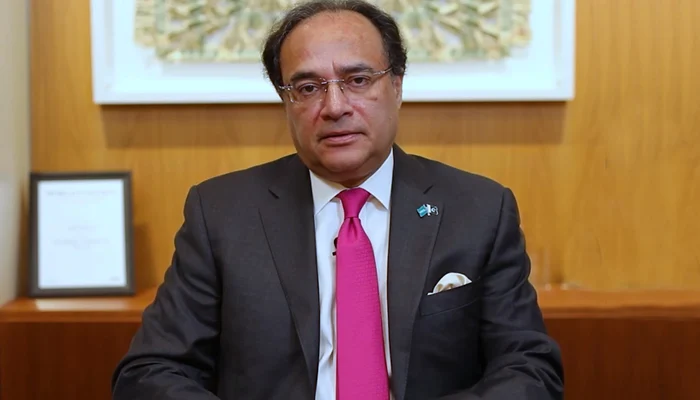|
Getting your Trinity Audio player ready...
|
Federal Finance Minister Muhammad Aurangzeb has unveiled a series of significant economic reforms, stating that neither he nor any cabinet member is drawing a salary. He emphasized that no mini-budget will be introduced, and there are plans to further reduce the interest rate. Additionally, measures are being taken to lessen the tax burden on certain groups.
Follow Whatsapp Channel For More News
Aurangzeb explained that non-filers will face stricter restrictions, including being barred from purchasing vehicles or property, as well as opening bank accounts. The government, he added, has always had access to data on non-filers but is now taking concrete steps to prevent them from making large financial transactions. Non-filers will also no longer be able to invest in mutual funds.
Read Also: FBR Extends Income Tax Return Filing Deadline by 14 Days
Aurangzeb highlighted the recent signing of a new National Finance Agreement between the federal government and the provinces. He praised the cooperation of all provincial chief ministers, noting that Khyber Pakhtunkhwa, under the leadership of Chief Minister Ali Amin Gandapur, was the first to support the initiative. This agreement will help provinces enhance their revenue generation, he said.
Reflecting on the previous fiscal year, the finance minister reported signs of economic stability, including improvements in the country’s credit rating and a steady decline in interest rates. He also mentioned a rise in remittances, which has provided further support to the economy. The State Bank of Pakistan has been actively managing open market operations, a move Aurangzeb deemed essential for sustained growth.
In the agricultural sector, Aurangzeb announced plans to gradually eliminate the support price system for wheat and sugarcane. Additionally, some provinces will begin to share the financial responsibility for certain Public Sector Development Program (PSDP) projects. A framework is also being developed to implement agricultural income tax, which will be enforced uniformly across all provinces.
Aurangzeb outlined plans to expand the tax net by bringing wholesalers, distributors, and the real estate sector under taxation. He suggested that direct subsidies should be distributed through the Benazir Income Support Programme (BISP) rather than through utility stores. Moreover, starting July 1, 2024, a contributory pension scheme will be introduced for all new employees.
In a notable development, Aurangzeb also disclosed that discussions are underway with China to repay long-term loans in Chinese yuan instead of U.S. dollars. Talks have also commenced with Independent Power Producers (IPPs) regarding energy sector reforms.
The finance minister concluded by highlighting a significant rise in the number of tax returns filed in September, a positive sign of increased taxpayer compliance. These reforms, he noted, are part of broader efforts to streamline the economy and ensure long-term stability.

